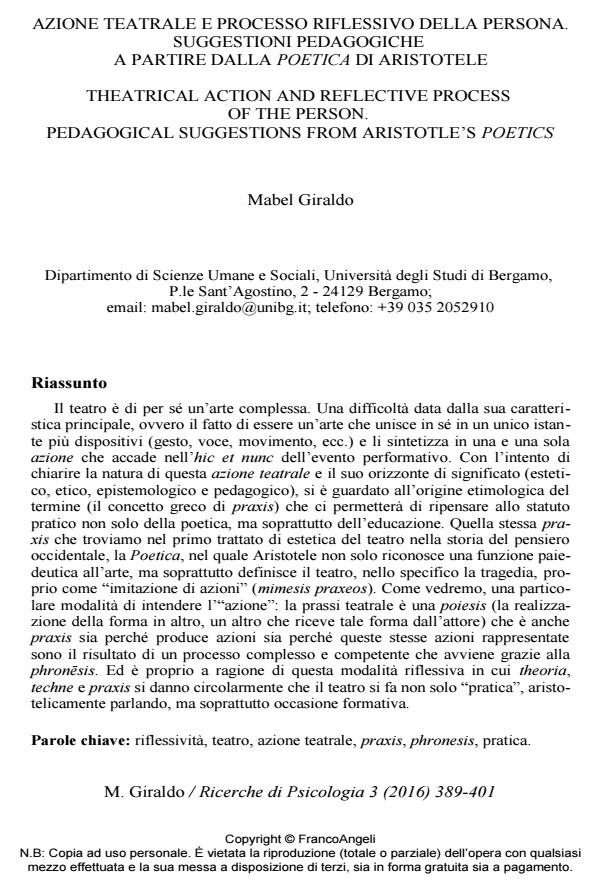Theatrical action and reflective process of the person. Pedagogical suggestions from Aristotle’s poetics
Journal title RICERCHE DI PSICOLOGIA
Author/s Mabel Giraldo
Publishing Year 2016 Issue 2016/3
Language Italian Pages 13 P. 389-401 File size 193 KB
DOI 10.3280/RIP2016-003008
DOI is like a bar code for intellectual property: to have more infomation
click here
Below, you can see the article first page
If you want to buy this article in PDF format, you can do it, following the instructions to buy download credits

FrancoAngeli is member of Publishers International Linking Association, Inc (PILA), a not-for-profit association which run the CrossRef service enabling links to and from online scholarly content.
The theater is a complex art. This difficulty is given by its main feature: the fact of being an art that brings together in a single moment more devices (gesture, voice, movement, etc.) and synthesizes them into one and only action which happen "here and now" in the performative event.With the intention to clarify the nature of this theatrical action and its horizon of meaning (aesthetic, ethical, epistemological and pedagogical), the paper looks at the etymological origin of the term (the greek concept of praxis) that allow us to rethink the practical status of the poetic, as well as education. We find the word praxis also in the first survey on the theater aesthetics in the history of Western thought, the Poetics, where Aristotle recognizes not only the paiedeutica feature of this art, but especially defines theater (the tragedy) just as "imitation of actions" (mimesis praxeos). A particular "action": the theatrical practice is a poiesis (the realization of the form given by the actor) who is also praxis as it produces actions and actions are the result of a complex and competent process that takes place thanks to phronesis. And it is precisely thanks to this reflective mode, in which theoria, techne and praxis is given circularly, theater becomes not only "practical", Aristotelian talking, but mostly an educational opportunity.
Keywords: Riflexivity, theater, theatrical acion, praxis, phronesis, practice.
Mabel Giraldo, Azione teatrale e processo riflessivo della persona. Suggestioni pedagogiche a partire dalla poetica di Aristotele in "RICERCHE DI PSICOLOGIA " 3/2016, pp 389-401, DOI: 10.3280/RIP2016-003008